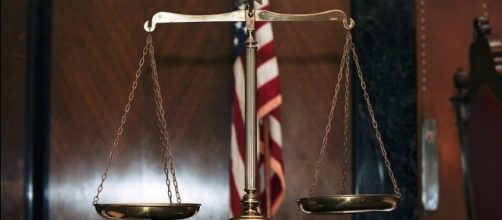During yesterday’s Involuntary Manslaughter trial against 20-year-old Michelle Carter in Massachusetts, psychiatrist Peter Breggin testified that the anti-depressant Celexa affected Carter’s frontal lobe, the area of the brain that controls empathy and decision-making. He said, she was “involuntarily intoxicated” on the medication and became delusional, even texting Roy’s phone for weeks following his death.
Carter, at age 17, was taking the medication when Conrad Roy III, her 18-year-old boyfriend committed suicide by carbon monoxide poisoning.
His suicide in 2014 followed a series of telephone calls and texts between the couple. Carter is alleged to have encouraged and pressured the teen to take his own life.
Defendant changed medications weeks before boyfriend's suicide
Three months before Roy’s suicide, she switched from taking Prozac to taking Celexa, Breggin testified, and she was not able to form criminal intent. Medications such as Celexa, he explained, can impair love, understanding, wisdom, and judgment.
Her lawyer, Joseph Cataldo, contends that Roy, who had a failed suicide attempt in 2012, made the decision to kill himself. His client initially attempted to dissuade Roy, he said.
Breggin asserted that Conrad was talking to an emotionally troubled, younger girl about his plans to take his own life.
Eventually, she supported his wishes. The psychiatrist testified that he reviewed all the Facebook and text messages between the pair and affirmed that, starting in 2012, Roy told the defendant that he wanted to commit suicide. Her boyfriend further said that there was “nothing” she could do to prevent him from doing so.
Additionally, Breggin relayed that Roy’s unswerving focus on killing himself remained for “hours and hours” and page after page of the couple’s communications. According to him, the defendant was overwhelmed by Roy’s relentless focus on committing suicide.
Several messages from 2012 were presented to the court. In those communications, Roy told Carter that it was his time to “go,” and that Satan wanted him in hell a specific date.
She told him that him that he was scaring her and to stop.
Carter repeatedly pleaded with him to take his medication after he informed her that he stopped taking his pills. Nearing the end of Roy’s life, though, the tone of their conversations took a turn. Irritation and impatience came across in her texts. Finally, she nagged him to hurry and take his life.
Accused played dual role before boyfriend's killed himself
Contrarily, the prosecution alleges that Carter was duplicitous: she feigned the role of being a loving and distraught girlfriend while simultaneously cajoling her boyfriend toward suicide. She sent him a litany of messages encouraging him to kill himself.
Breggin told the judge that he derived his conclusions about the accused after he reviewed police files, her educational records, and text messages.
He also interviewed people who knew Carter. The psychiatrist also read a letter written by Roy, before his death, to Carter. He told her that he loved her, thanked her for her kindness, and stated that he expected he would reach heaven.
Carter waived her right to a jury trial. The case being heard and decided Judge Lawrence Moniz, Bristol County Juvenile Court, since she was still a minor when the alleged crime happened. She faces up to 20 years in prison if she is convicted of involuntary manslaughter.


